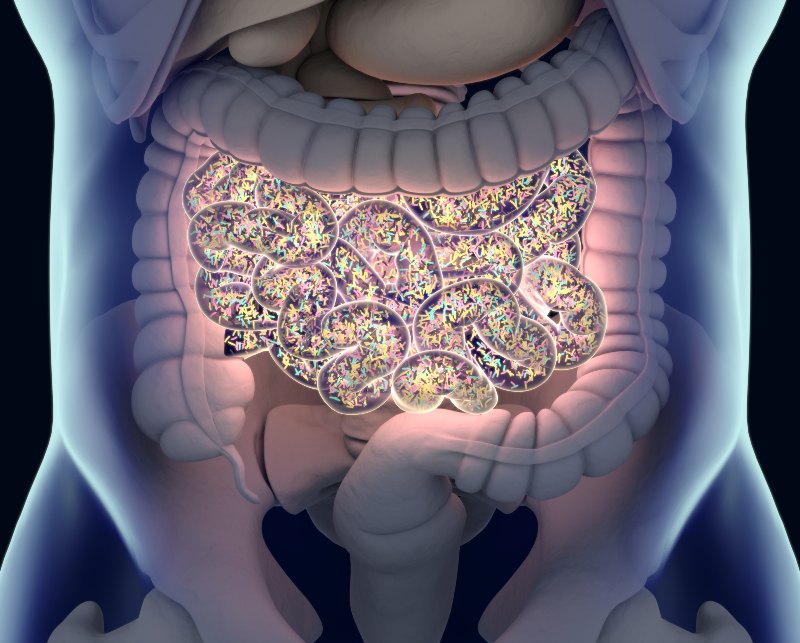Understand Your Gut Microbiome with the Experts in GA

What are Microbiome and Probiotics?
The microbiome refers to trillions of microorganisms residing in your gut, including bacteria, viruses, fungi, and other microbes. This diverse ecosystem plays a pivotal role in your overall health, influencing digestion, immunity, and even mental well-being.
Probiotics, on the other hand, are live beneficial bacteria or yeasts that you can consume through certain foods and supplements. These friendly bacteria are essential in supporting a balanced gut microbiome. Probiotics offer numerous benefits for digestive health and the rest of your body.
The Role of the Microbiome
Your gut microbiome is an incredibly dynamic environment that influences your digestive health significantly. It helps break down food, absorb nutrients, and produce essential vitamins. A healthy microbiome acts as a barrier against harmful bacteria and pathogens, reducing the risk of infections. It also communicates with the immune system, ensuring your body responds appropriately to potential threats.
Disruptions to the microbiome can lead to gut microbiome diseases such as inflammatory bowel disease (IBD), irritable bowel syndrome (IBS), and other digestive issues. Therefore, understanding what gut microbiome is and maintaining its balance is vital for good health. Our GI services can help you with this.
Benefits of Probiotics
Probiotics offer many health benefits by enhancing the composition of your gut microbiome. Some key probiotic health benefits include:
- Improved Digestion – Probiotics aid in breaking down food more efficiently, alleviating symptoms like bloating and constipation.
- Enhanced Immune Function – By promoting the growth of beneficial bacteria, probiotics support your immune system's ability to fight infections.
- Alleviation of GI Disorders – Studies have shown that probiotics can help manage symptoms of IBS and reduce the severity of IBD flare-ups.
- Better Mental Health – The gut-brain axis indicates that a healthy gut microbiome can positively impact mood and cognitive functions.
Sources of Probiotics
Probiotics can be found in various foods and supplements. Fermented foods are particularly rich in these beneficial bacteria. Some excellent sources include:
- Yogurt – A well-known probiotic-rich food that can improve gut health.
- Kefir – A fermented milk drink packed with diverse probiotic strains.
- Sauerkraut and Kimchi – Fermented vegetables that offer a robust mix of probiotics and fiber.
- Miso and Tempeh – Fermented soy products that are not only rich in probiotics but also protein.
- Probiotic Supplements – Available in pill, powder, or liquid form, these supplements provide concentrated doses of beneficial bacteria.
How to Maintain a Healthy Microbiome
- Eat a Diverse Diet – Consuming a variety of fruits, vegetables, and whole grains ensures a wide range of nutrients that promote a healthy microbiome.
- Limit Antibiotics – While necessary at times, antibiotics can disrupt the balance of your gut bacteria, so they should be used judiciously.
- Stay Active – Regular physical activity can positively affect gut microbiome diversity.
- Manage Stress – Chronic stress can negatively impact your gut health, so incorporating stress-reducing activities can be beneficial.
- Stay Hydrated – Drinking plenty of water supports the mucosal lining of the intestines, promoting a healthy microbiome.
Why Choose GI Specialists of Georgia?
Contact Us Today in Atlanta, GA
If you are interested in learning more about how the gut microbiome and probiotics can benefit your digestive health, or if you're seeking effective gut microbiome disease treatment, reach out to GI Specialists of Georgia. Our experienced team is ready to guide you on your journey to better health.
Don't wait to take charge of your digestive health. Contact us today to schedule a consultation and discover how we can support your gut health, digestion & microbiome support needs. Your well-being is our priority, and we are dedicated to helping you achieve optimal digestive health.
Explore our services and take the first step toward a healthier you.
Overview
Belching or passing gas (flatus) is natural and common. We all have gas in our intestinal tract. Gas can cause a sense of bloating (fullness), belching, abdominal cramps, and flatulence (gas). These symptoms are usually brief and resolve once gas is released by belching or flatulence. Some people can be more sensitive to even normal amounts of gas and develop symptoms.
The amount of gas produced by the body depends upon our diet and other individual factors. Certain foods and medical conditions can cause excessive amounts of gas.
Learn More about Gas and Bloating
- Belching
- Bloating
- Flatulence
- Abdominal pain, discomfort, and tightness
- Excessive air swallowing. Most of us swallow air during eating. Some individuals who experience anxiety may swallow excessive amount of air. Chronic postnasal drip can also cause excess air swallowing.
- Drinking carbonated beverages and certain foods can also generate excess gastric air. Some carbohydrates cannot be digested in the small intestine and reach the colon where bacteria metabolize them to produce gasses. Examples of such food are bran, cabbage, cauliflower, broccoli, and beans.
- Lactose intolerance. Many patients experience abdominal cramps, bloating and flatulence when they ingest milk, certain cheeses or ice cream because they lack the enzyme (lactase) which is required to digest milk sugars (lactose).
- Bacterial overgrowth. Another cause of bloating and abdominal distension is from bacterial overgrowth. This is not an infection but can happen when there is an excess amount of normal bacteria in the small intestine.
- Constipation may also contribute to bloating and a sense of abdominal distention.
The diagnosis of other gastroenterological problems should be excluded. Abdominal distension when erect but not when recumbent is an indication of weak abdominal muscles. If lactose intolerance is suspected, milk can be withdrawn from the diet and symptoms observed. However, lactose can be administered orally and the hydrogen gas which is generated in susceptible people can be measured in the breath. Postnasal discharge from sinus problems can cause air swallowing and should be considered. If bacterial overgrowth is suspected, your physician may administer a hydrogen breath test.
Blood tests are not usually helpful for gaseous problems but testing for celiac disease may prove useful since failure to absorb wheat, barley, and rye can lead to excess flatulence.
- Diet modification. Foods such as cauliflower, broccoli, cabbage, beans, and bran should be avoided. Carbonated beverages need to be eliminated. Milk and other dairy foods should be avoided. Sugar-free gum and hard candies should be avoided.
- Over the counter medications:
- Simethicone products may be helpful in some people.
- Charcoal tablets have also been used
- Bismuth subsalicylate has been used to reduce the noxious odor of some sulfa-containing rectal gasses.
- Alpha-d-galactosidase, an over the counter product, has been used to help in the digestion of complex carbohydrates.
- Individuals with IBS may benefit from symptomatic therapy for “gas pains” by using antispasmodic therapy such as dicyclomine or hyoscyamine under the tongue.
- Some patients with bacterial overgrowth may see improvement from the occasional use of antibiotics to reduce the number of bacteria in the small bowel, thereby reducing gas production.
- If weak abdominal muscles are suspected as a cause for abdominal distension, abdominal-tensing exercises may be helpful, although very difficult to achieve when patients are middle aged and older.
- If symptoms fail to respond to the dietary strategies noted above, medical help should be sought to be confident that no other underlying abnormalities are present.
- Belching and flatulence are normal body processes.
- Swallowed air is “gas” in the body and contributes significantly to symptoms.
- Unabsorbed dietary carbohydrates can cause gas production by colon bacteria.
- Carbonated beverages, sucking on hard candy, and chewing gum should be avoided.
- Abdominal distension when erect but not recumbent may be due to weak abdominal muscles.
- Increasing frequency or severity of symptoms should prompt medical attention.
Schedule an Appointment with Our Atlanta-Area Gastroenterologists
"*" indicates required fields

